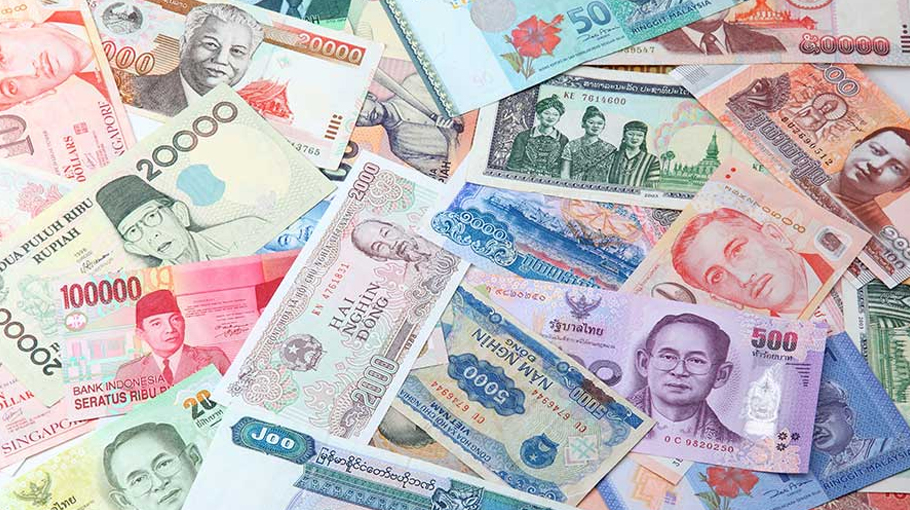Trade in local currency: An attempt to foster regional growth
Introduction of rupee as the preferred currency for trade between Bangladesh and India signifies a leap towards increased financial independence and regional economic integration

In a momentous development, Bangladesh and India have embarked on a path of economic collaboration by initiating trade transactions in the Indian rupee (INR). This strategic decision marks a significant departure from the reliance on the US dollar and is poised to bring about numerous advantages, fostering closer bilateral ties, reducing currency risks, and propelling regional trade in South Asia.
The introduction of the rupee as the preferred currency for trade between Bangladesh and India signifies a leap towards increased financial independence and regional economic integration. This move holds immense potential for both countries, as it is expected to significantly enhance bilateral trade and streamline business operations.
Adoption of rupee as the trading currency will simplify transactions between Bangladesh and India by eliminating the need for constant currency conversions. Businesses on both sides can now negotiate and settle deals more efficiently, saving time and reducing costs associated with currency exchange. This streamlined process will likely encourage more significant trade volumes, stimulate economic growth, and deepen the economic integration between the two nations.
Additionally, conducting trade in the rupee will mitigate currency risks for businesses operating in both countries. The volatility of the global currency market and fluctuations in the exchange rate between the dollar and local currencies have traditionally posed challenges and uncertainties. By shifting to the rupee, businesses will be better equipped to manage their finances, plan their operations, and mitigate the risks associated with foreign exchange fluctuations. This enhanced stability will foster investor confidence, attract foreign direct investment, and create a conducive environment for economic growth. The decision to conduct trade transactions in the rupee also holds broader geopolitical implications. It challenges the dominance of the dollar in international trade and financial transactions, encouraging other nations to diversify their currency portfolios. Bangladesh and India's leadership in promoting local currency transactions can inspire other countries to consider similar initiatives, thus contributing to a more balanced and resilient global financial system.
The decision by Bangladesh and India to conduct trade transactions using the rupee brings significant benefits to both countries, particularly in the face of global challenges such as the increasing dollar price amidst the Russia and Ukrainian war. Both nations can strengthen their economic ties by trading in the rupee and effectively managing import costs during fluctuating exchange rates and uncertain global financial conditions.
Adoption of rupee as the trading currency will
simplify transactions between Bangladesh and
India by eliminating the need for constant currency
conversions. Businesses on both sides can now
negotiate and settle deals more efficiently
With the adoption of the rupee for trade, Bangladesh and India reduced their dependence on the dollar, thereby mitigating the impact of its volatility on their economies. As the dollar price increases due to geopolitical tensions and market fluctuations, conducting trade in the rupee provides a shield against potential losses and uncertainties arising from a rapidly changing exchange rate. This stability allows businesses in both countries to plan their import costs better and maintain a more predictable pricing structure.
The decision to trade in the rupee also promotes financial autonomy and regional cooperation between Bangladesh and India. By conducting transactions in their local currencies, both nations demonstrate a commitment to strengthening their economic ties and reducing their reliance on external factors that can disrupt trade flows. This shift fosters greater trust and cooperation, creating a more conducive environment for investment and economic growth.
The move towards the rupee as the trading currency did not occur in isolation. It is the result of extensive discussions and cooperation between the central banks and relevant authorities of both Bangladesh and India. Over the years, both countries have taken significant steps to strengthen their bilateral relationship in various sectors, including trade, transportation, and energy. The adoption of the rupee as the preferred trading currency is a testament to the growing trust, cooperation, and shared vision between the two nations.
This historic development is expected to unlock an array of opportunities for businesses, entrepreneurs, and consumers in both Bangladesh and India. Small and medium-sized enterprises (SMEs) stand to benefit significantly from reduced transaction costs and improved ease of doing business. Moreover, consumers may enjoy greater availability of goods and services, as local currency transactions eliminate the need for foreign exchange markups, thereby potentially leading to more competitive pricing.
While the transition towards using the rupee for trade transactions is undoubtedly a monumental achievement, challenges may arise during the initial phase. Both countries will need to address issues related to currency convertibility, foreign exchange reserves, and cross-border fund transfers to ensure a seamless transition. It will be crucial to provide stakeholders with sufficient education and information to facilitate understanding and adoption of the new system.
In conclusion, the decision by Bangladesh and India to conduct trade transactions using the rupee signifies a historic milestone, strengthening economic ties and fostering regional trade. Both nations are expected to reap the rewards of increased trade, reduced currency risks, and enhanced economic integration by reducing reliance on the dollar and embracing the rupee. As other countries observe this momentous occasion, the shift towards local currency transactions may catalyze a more diversified and resilient global financial landscape. The future holds tremendous promise for Bangladesh, India, and the entire South Asian region as they forge ahead with this progressive approach to international trade using the rupee.
Dr. Pranab Kumar Panday is a Professor in the Department of Public Administration at the University of
Rajshahi, Bangladesh




